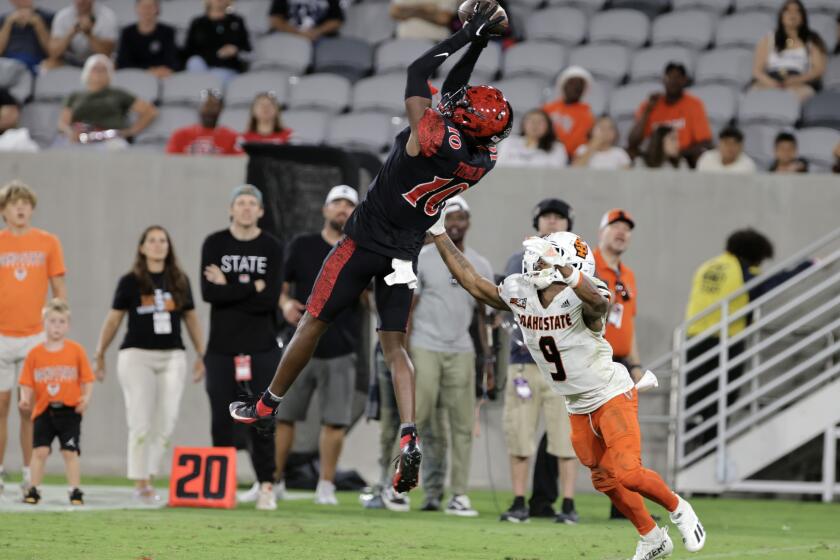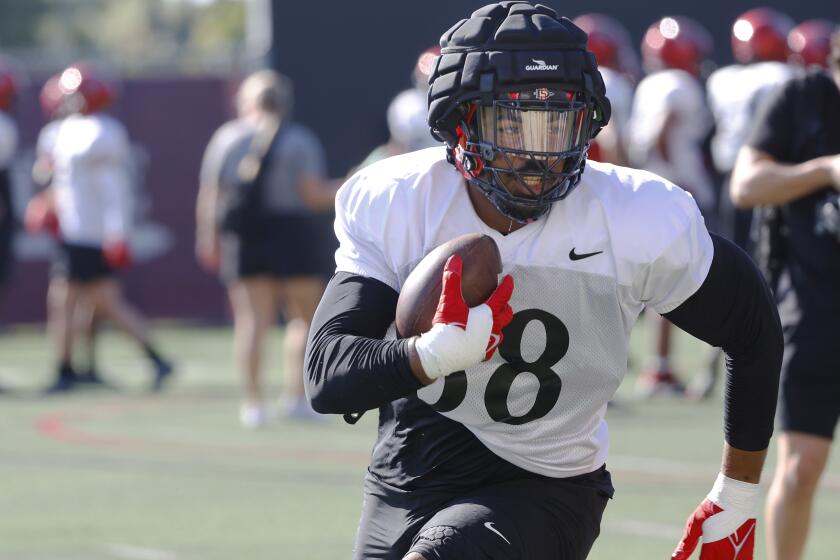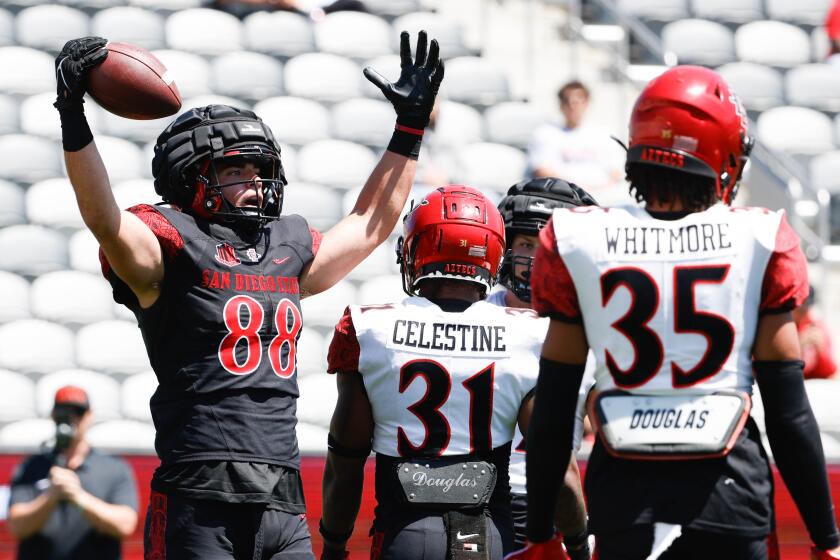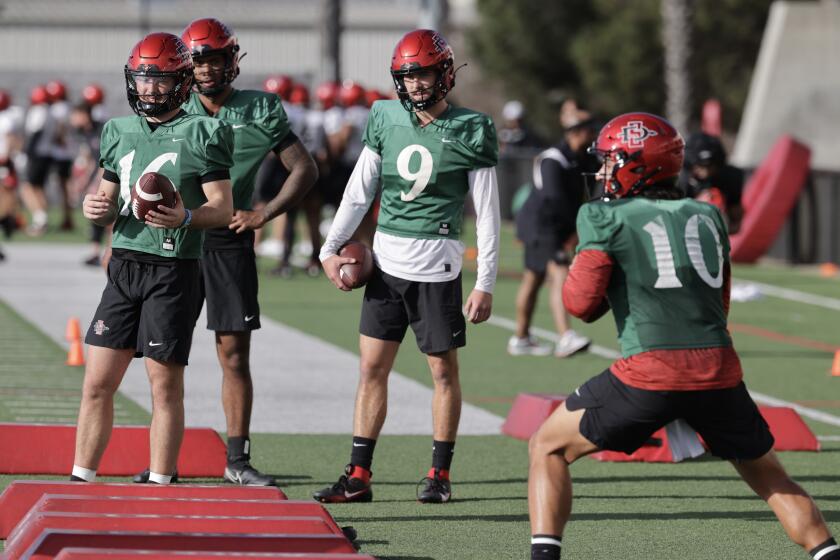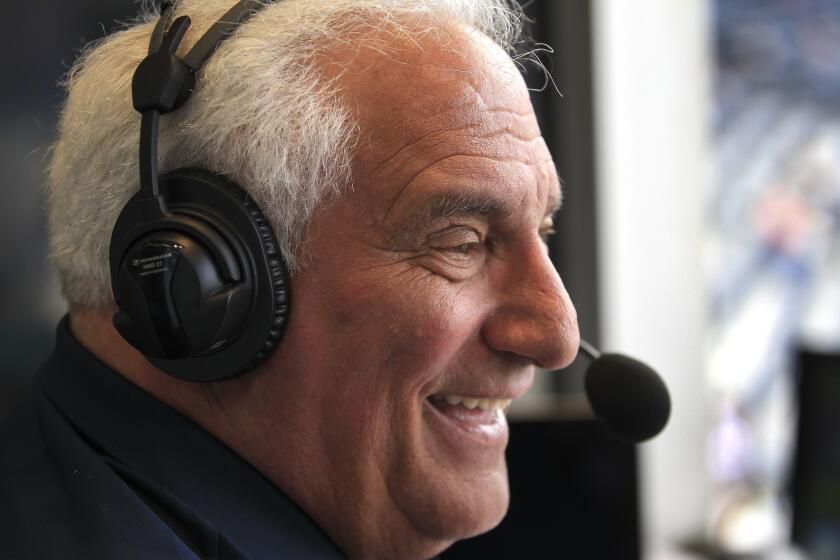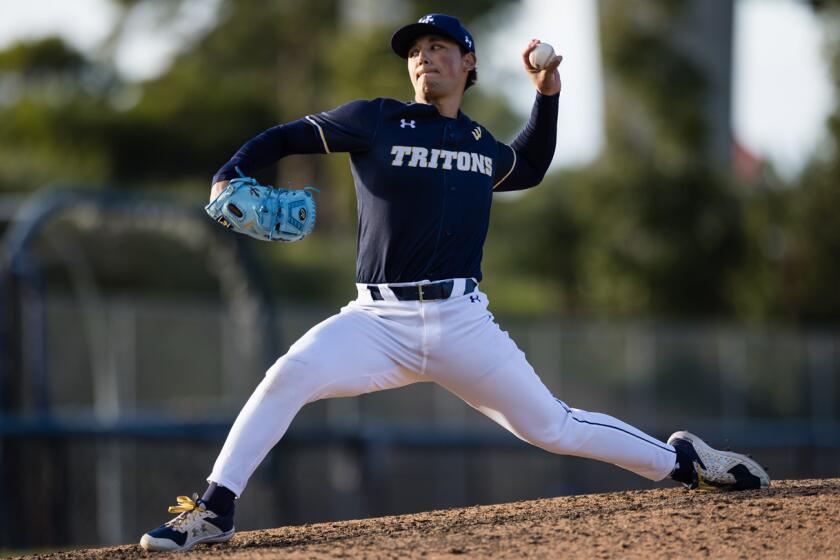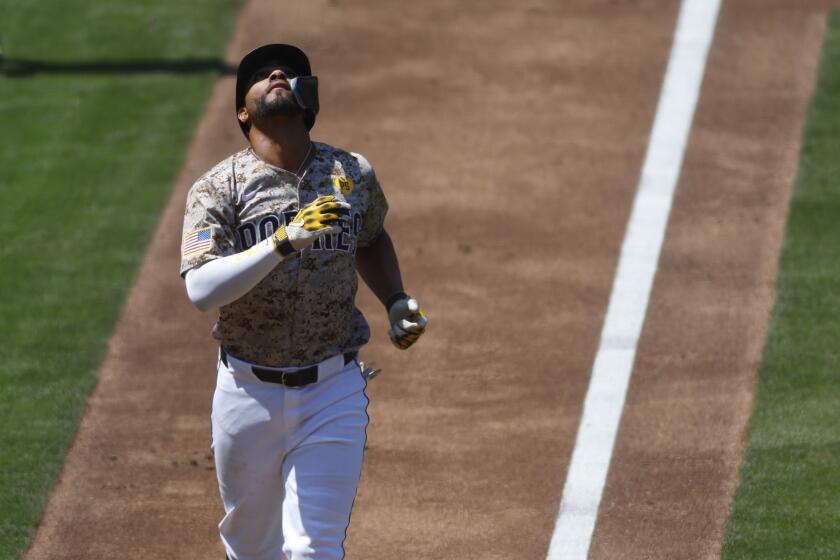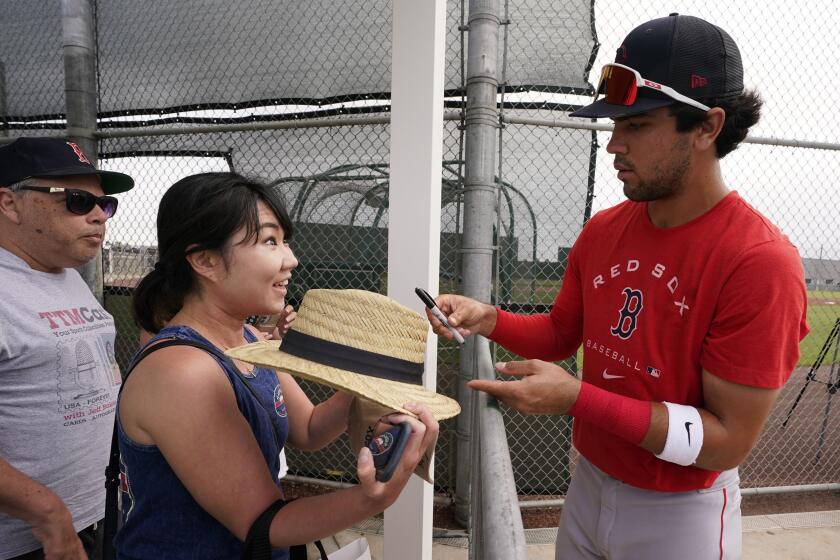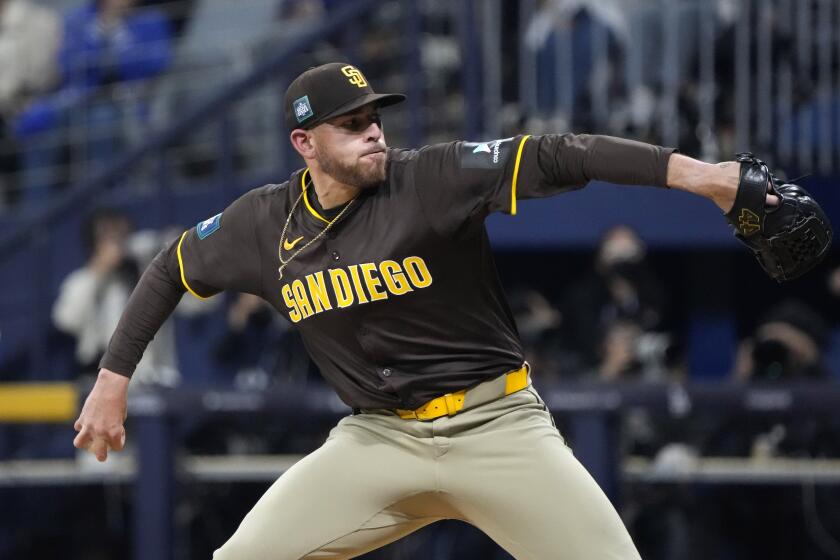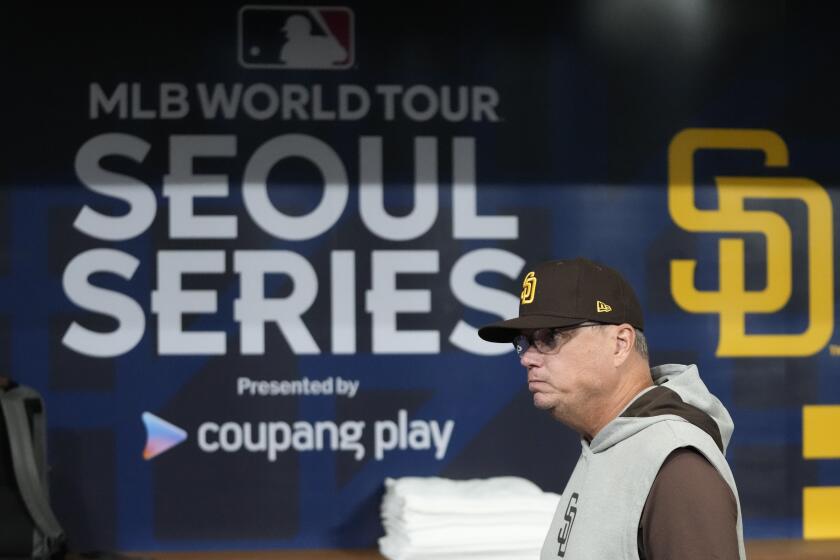Winter Meetings Scene & Heard: Baseball Trade Show covers everything from opening pitch to final out
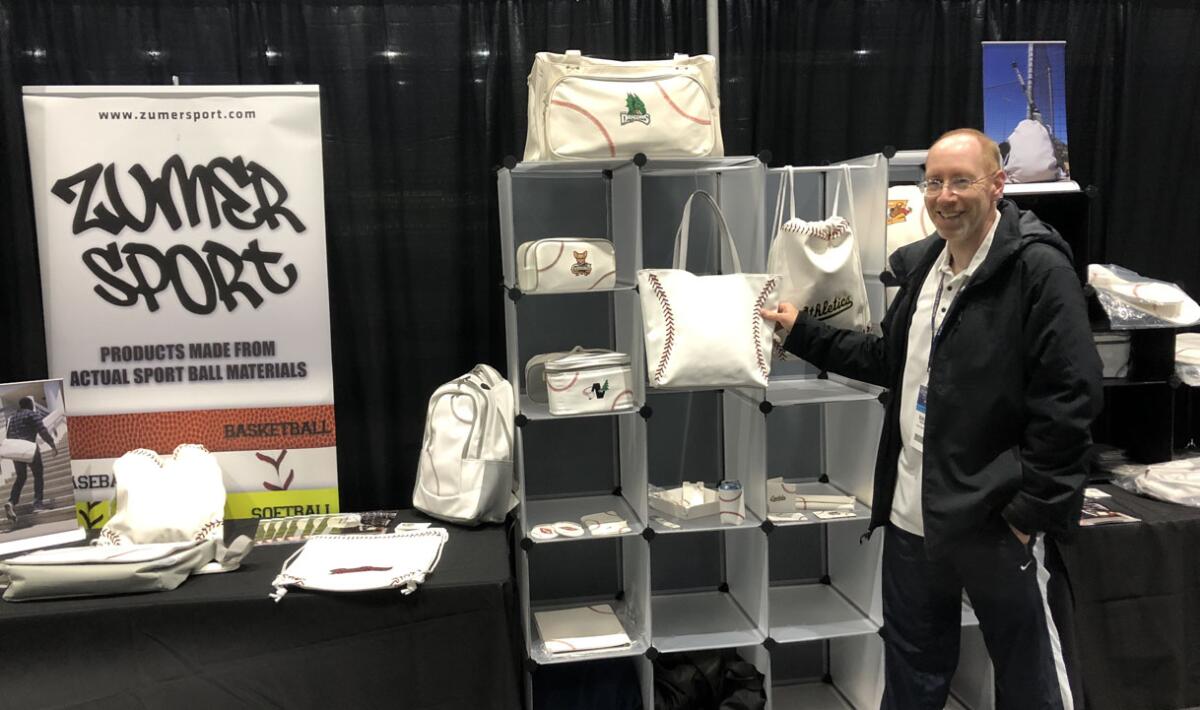
The nearly 300 vendors included one company growing at the seams, another that is a hit with bat mugs and another that may know seats better than anyone
Somewhere in the neighborhood of $1 billion was committed to ballplayers during the Winter Meetings, most of it earmarked for the direct deposit accounts of pitchers Stephen Strasburg and Gerrit Cole.
A couple of blocks down from the Grant Hyatt, where those deals were announced this week, the Baseball Trade Show was taking place inside the downtown Convention Center.
This is where many of the businesses of baseball come to generate even more business. Vendors displayed their products for everything from bulk purchases of peanuts and hot dogs to stadium electronics to apparel to training tools to health insurance, and on and on in the 288 booths located in Halls G-H.
Visitors ranged from sharp dressers in three-piece suits to a man wearing a blue sweatshirt with a big yellow rubber ducky on the front.
Apparently, guy was so excited with his minor league merch purchase (guessing the Akron Rubberducks) that he decided to put it on for the stroll along Harbor Drive. Never mind that without the cover of Comic-Con crazies, the man looked like a duck out of water.
The trade show was filled with aisle after aisle of interesting products and fascinating origin stories. Here are three businesses that caught the eye:
Keeping them in stitches
The 108 stitches on a baseball have captivated the imagination for more than 100 years.
But who knew putting red stitches on everything from back packs to pillows and mousepads to wallets could be big business?
“We had no intention of starting the business,” said Dan Hock, president and CEO of Zumer Sport.
But back in 2006, when his son Jacob was a 10-year-old youth basketball player, the origins of the idea sprouted in his son’s bedroom in their San Luis Obispo home.
“We redecorated his room, which had a window seat,” Hock said. “We thought it would be cool to cover his window seat in basketball leather.”
An old overseas supplier provided a bolt of the material and the seat was a success.
That led to producing nylon drawstring bags with the basketball material
Hock said, “We took it to a seamstress, made a prototype, thought, ‘this is pretty cool,’ and no one else had ever done it.”
This led to the idea of doing products with other sports materials.
Here is Hock, 13 years, 15 patents and 250 products later selling items with the skins from baseballs, footballs, basketballs, softballs and soccer balls.
Zumer has licenses know with all the major sports leagues and recently made a deal with the NCAA that will open another wide range of products.
Zumer also has ventured into making women’s shoes with the various skins. Branded under a private label, the shoes are proving quite popular.
“They’re gorgeous,” Hock said. “It’s probably the best product we make. They’re really nice.”
Trade shows such as this lead to sales with businesses that may use the items for season ticket holder gifts, employee gifts or promotional products.
“We always say that we do a really bad job of marketing ourselves,” Hock said, “but everybody else does a real good job of marketing themselves using our products.”
Hock recently relocated the business to Washington, D.C., where his son, now 24 years old with a Master’s degree in forensic chemistry, lives and works.
Jacob Hock isn’t going to follow in the family business.
“He’s good being a science guy,” said Hock, whose son is at least repping the gear.
“Every day he’s got his basketball back pack.” Hock said.
Website: zumersport.com.
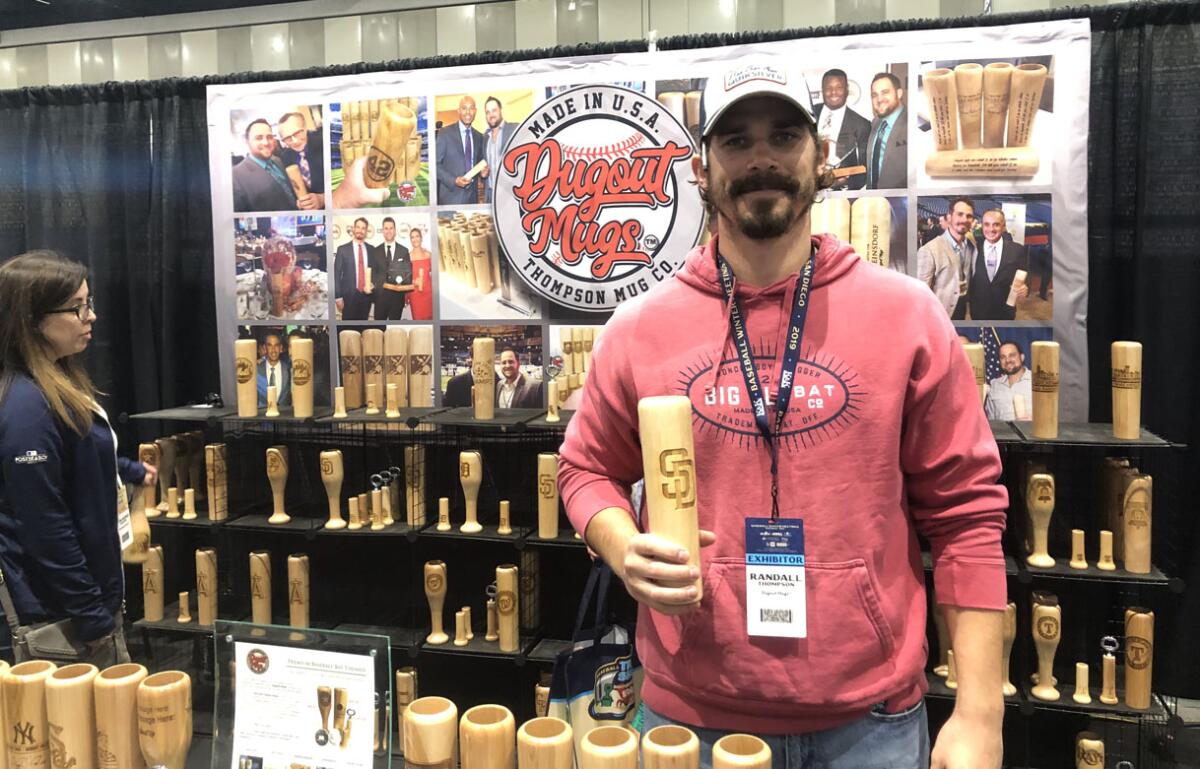
Roll out the barrels
Randall Thompson was the pitching coach at Florida Tech five years ago when he came across the team’s hitting coach in the dugout sawing into baseball bats.
“He was creating a training tool for players’ hands,” Thompson said. “I saw just a barrel laying in the dugout. I started looking it over and wondered if you could drill out the center and drink from it.
“I put the idea in my back pocket for about six months. Out of desperation, I started making mugs in my sister’s back yard.”
Thompson launched the company in the summer of 2016, with a focus toward online sales of customized products, gained the attention of the MLB Players Association and later MLB itself.
“The next idea I had was taking the knob of the bat and cutting it off make a shot glass,” Thompson said. “Those are doing really, really well.”
They’ve now also shrunk down the size of a bat to make it into a wine glass. There’s also a bat handle bottle opener.
This year, Thompson, president and founder of Dugout Mugs, expects sales of $3 1/2 million. Over the past three years, they have sold more than 100,000 products.
The Dugout Mug remains 85 percent of sales, typically printed with the logo of the customer’s favorite team on the front and personalized in some fashion on the back.
They market the baseball gift items for things like golf awards, trophies and centerpieces, as well as birthday and Christmas gifts.
“A good idea can only carry you so far,” Thompson said. “Everybody loves the idea.
“But there’s a learning curve that comes along with it. There’s a lot of risks. You can’t be risk averse.”
Thompson didn’t have any business background before getting into this, but appears to have his business on solid footing for a bright future.
“Knock on wood,” Thompson said. “So far, so good.”
Website: DugoutMugs.com
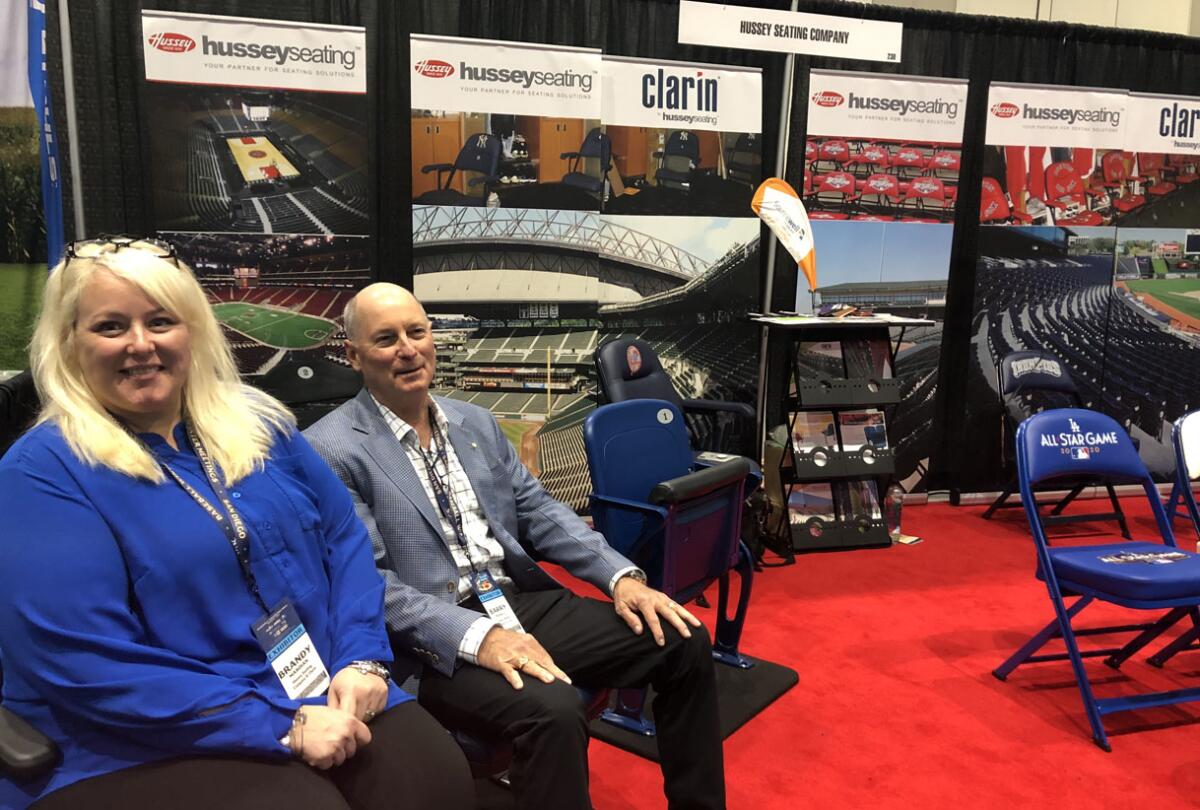
Good seats always available
Anyone who got worn out walking around the trade show was in luck. It seemed like every aisle included a company selling stadium seats.
Hussey Seating Company had a selling point no one else could match.
“It’s like the seventh oldest, continuously operated, family-owned business in the United States,” said Barry Pickell, who has been with the company for more than four decades.
Known for quality that lasts, Hussey isn’t the company someone approaches when they’re looking for a low bid.
“We usually don’t get the new construction because our price is higher,” Pickell said. “We usually get that job when they reseat it because the life cycle of most other competitor (seats) is 8-10 years. The life cycle of our product is like 15-30 years.”
The family-owned business is still based in North Berwick, Maine, where it began in 1835.
Back then the focus was on farm implements, like plow blades, and the company employed experts in metal and wood working.
By the end of the 19th century the company had retooled and was shaping steel for such things as fire escapes, bridge supports and ski lifts.
In the 1930s, Hussey began making bleachers for sporting events, which evolved in the 1970s to a point that the company also was making individual chairs.
Purchase of a local polymer molding business positioned the company to make the chairs sports fans have come to know today.
Hussey produced 5,000 Sentinel seats for the hockey rink in Lake Placid, N.Y., where the 1980 U.S. hockey team staged its miracle on ice.
In the 1980s, the company began handling business for franchises across the sports spectrum. In 1998, Hussey acquired its largest contract ever, doing the seating for both the Kansas City Royal’s Kaufman Stadium and the Kansas City Chiefs’ Arrowhead Stadium.
That’s more than 115,000 seats.
“We install them, too,” Pickell said. “They come in pieces, so you have to lay it all out.
“You do about three seats a man hour, so do the math.”
Take a seat, we’ll wait.
Website: husseyseating.com
Go deeper inside the Padres
Get our free Padres Daily newsletter, free to your inbox every day of the season.
You may occasionally receive promotional content from the San Diego Union-Tribune.

